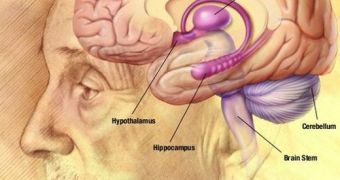Researchers looking into the very foundations of the mental processes and connections that allow us to memorize and remember things say that the time when a new memory is formed is just as important as the memory itself. In other words, it's not only what's in a scene, or the scene itself, that counts on how strong the memory would be imprinted on your mind. The timing of the whole action is equally as important. The researchers highlight, however, that timing is not everything, but say that its role should not be completely ignored, PhysOrg reports.
For many years, researchers have been puzzled by a seemingly-simple question – what is it precisely that dictates whether a certain scene would be remembered later on or not? The recent investigation proposes that memories which develop particularly in the case of exposure to visual scenes are not entirely dependent on the attention level you are paying to them. The contents of the scene are important, the researchers say, but they are not the most important factor. In fact, the science group says, a combination of all three factors is what dictates the strength that the memory will have later on.
The new investigation was conducted by scientists at the University of Washington. They determined that cues in visual scenes are only recorded in the memory at behaviorally-relevant points in time. This is a new way of looking at how new memories form, and neuroscientists could gather new insight into this process by taking this approach. They say that attention is usually regarded as the most important factor in this process, in the sense that if you do not pay attention to a scene, you won't remember its content. In the experimental setups they devised, the researchers set out to test this hypothesis.
Test subjects had to undergo an attention-demanding “target detection task at fixation,” while at the same time viewing fast-moving series of photographs depicting various natural and urban landscapes. Each of them was then asked if he or she recognized a certain scene from the ones that were shown. “Usually, the addition of a secondary task decreases performance on the first task. However, in this particular case, adding a second task (letter identification) actually enhanced performance in the first task (scene memory) when targets were accurately detected in the second letter identification task,” explains the lead author of the new study, Jeffrey Lin.

 14 DAY TRIAL //
14 DAY TRIAL //